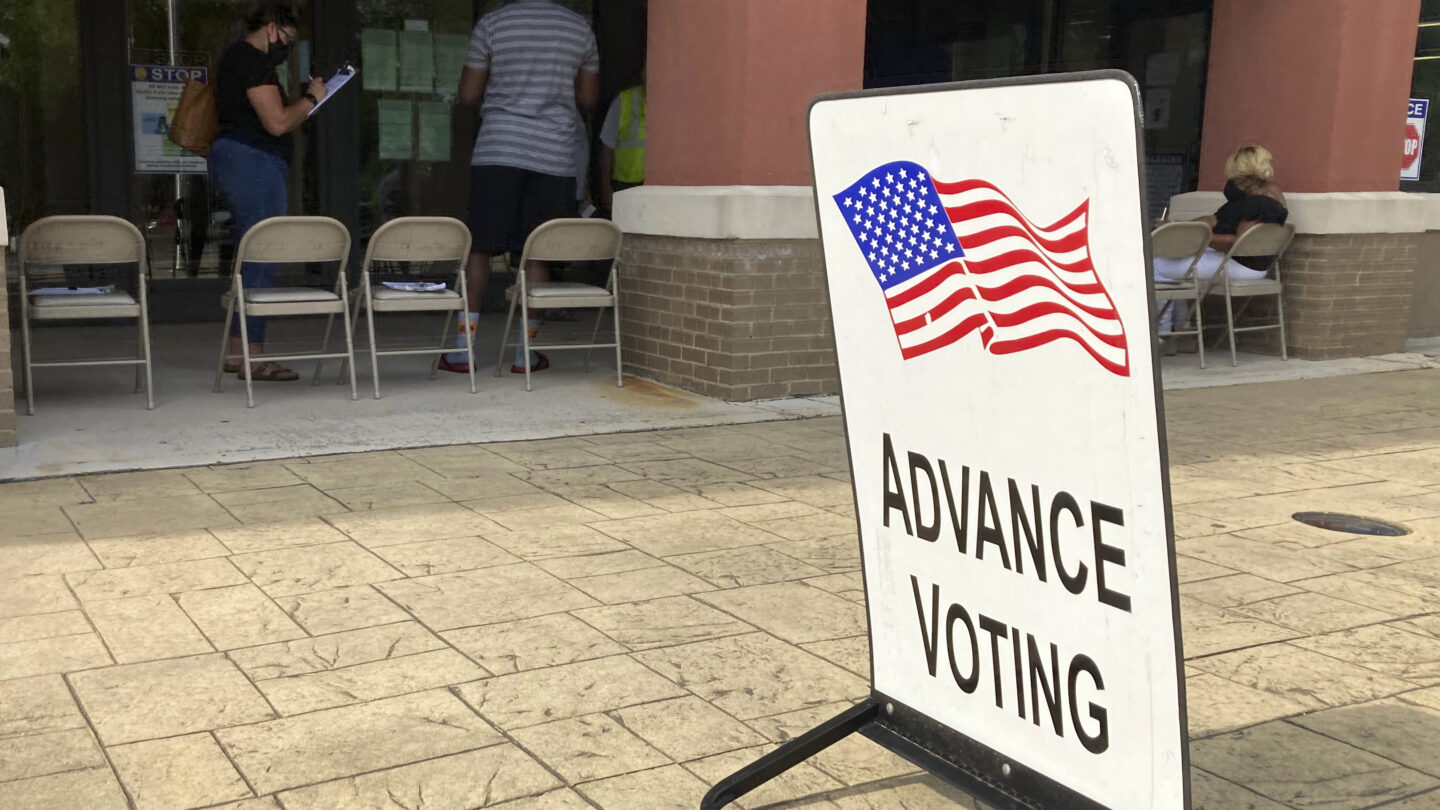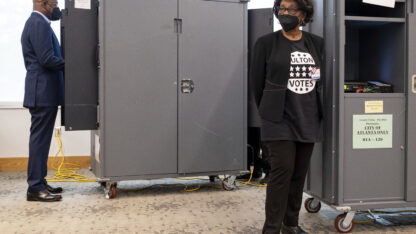May primary was the biggest test yet for Georgia's new voting law

Atlanta voter Wanda Beckham was shocked to learn her vote didn’t count in the May primary.
Beckham applied for an absentee ballot as early as she could, then sent it back in the mail.
But by the time her ballot got to the county Board of Elections, election day had passed by three days.
“It really sucks when you’re trying to make a conscious effort of doing the right thing, and then when it doesn’t…” Beckham says, her voice trailing off.
Georgia’s May primary was the biggest test yet of the sweeping election law Republicans passed last year. Georgia experienced record turnout for a midterm primary, but the share of voters who used an absentee ballot took a nosedive.
The new voting law, Senate Bill 202, changed many parts of election law, including absentee ballot rules. The measure imposed tighter timelines to request and return a ballot, new restrictions on ballot drop boxes and new ID requirements.
More than 2.6 percent of absentee ballots were rejected in May, according to election data from the Georgia Secretary of State. That’s up from just over 1 percent in the June 2020 primary.
More than 1,200 absentee ballots across Georgia were rejected in May for arriving too late.
Election data also shows absentee ballot rejections disproportionately affect Black voters, like Beckham.
“I want to keep voting and you know, some people think that they’re vote doesn’t count? I don’t want to be that person,” Beckham says.
Still, Georgia experienced record early, in-person voting as SB-202 expanded early voting options in some places. Republican Secretary of State Brad Raffensperger has touted high turnout as evidence the new voting law struck the right balance.
“I think confidence has been restored in the system and people understand that it’s really easy to vote in Georgia but also we have the appropriate guard rails to keep people from cheating,” Raffensperger told 11Alive News the day after the May primary.
In May, the share of people who voted by absentee ballot fell precipitously over past elections.
Only about 4 percent of voters cast absentee ballots in May, compared to 49 percent in the June 2020 primary and 26 percent in November 2020.
The drop is due, at least in part, to subsiding fears about the pandemic.
But Carolisa Coley, a DeKalb County poll worker, thinks that’s not the whole story.
“It was the rule change,” she says.
Coley says she saw many seniors showing up to vote in-person who normally vote absentee.
“The precinct that I work in [is] not ever as crowded as it was this last election,” she says. “I think they just didn’t understand they could still vote absentee.”
Amid all the changes, Coley says voters worried about making a mistake on an absentee ballot.
“We had people coming in there barely walking, but they were determined to vote,” Coley says. “It just hurt me because I knew it was a struggle to get there.”
State Representative Bee Nguyen, the Democratic candidate for Secretary of State, says strong turnout doesn’t mean Georgia’s new law didn’t affect voters.
“We should not view voters’ resiliency as a reflection of whether or not the ballot box is accessible,” she says.
For Wanda Beckham, the experience this May shook her confidence in the system.
This fall, she says she’s going to vote early and in-person.








